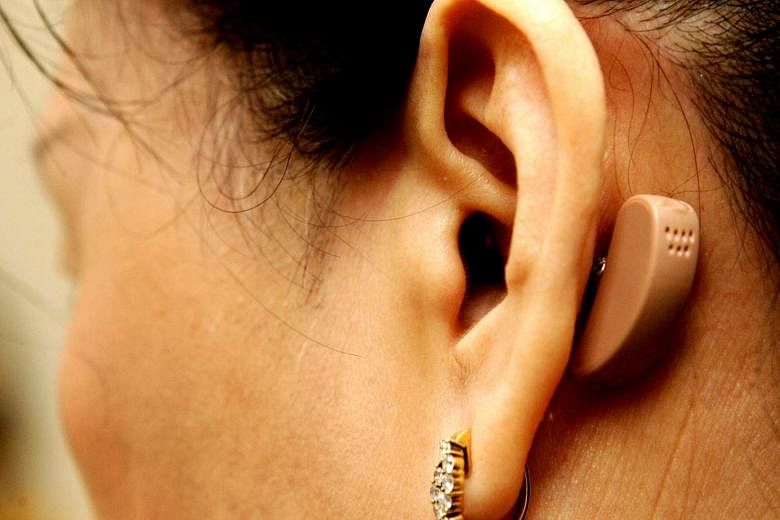Some people still refuse to consider wearing hearing aids even when they need one, having heard negative things about these devices.
But hearing aids have evolved.
"Gone are the days when they were big, bulky and thus visible," said Ms April Chong, the vice-president of the Society of Audiology Professionals Singapore.
"Hearing aids can be so inconspicuous now that they won't be noticed by people around you."
Hearing aids help hearing-impaired people by amplifying soft sounds.
If you are considering being fitted with one, there are some things you should know, said Ms Chong.
BE REALISTIC
These devices can help enhance residual hearing, but they cannot actually restore hearing.
And you cannot simply buy them off the shelves. Hearing aids have to be fitted and programmed to suit individual needs. A brand or style that works for someone else might not work for you.
Before you decide to get one, talk to an audiologist to understand how the ears work and how you hear sounds.
If you fully understand the extent of your hearing loss and the limitations of hearing aids, you will not have unrealistic expectations about what they can do for you.
An audiologist will be able to evaluate your hearing and help you choose the right hearing aid.
BE PREPARED TO COMMIT
Make the effort to learn how to use your hearing aid properly. Do not wear it as and when you like, or only during times when you think you need help.
Wear it for a certain length of time every day, about eight to 10 hours on average.
Using hearing aids is akin to embarking on a new listening process. This experience involves not just your ears but also your brain.
Your mind needs time to get used to the "new" amplified sounds around you.
Go for follow-up appointments, and make sure that you clarify any doubts with your audiologist. He or she will make the necessary adjustments to the device.
PRIORITISE YOUR LISTENING NEEDS BEFORE CHOOSING AN AID
There are many types of hearing aids these days.
Moreover, they come equipped with a wide variety of features, such as noise reduction or wireless connectivity.
For instance, if you are choosing a device for a hearing-impaired senior who has dexterity issues, look for one that is easy to handle.
Otherwise, a task as simple as changing the batteries could become a cumbersome chore. A hearing aid with rechargeable batteries might be a better option in such a case.
LOOK AFTER YOUR HEARING AID
Take good care of your hearing aid, and always make sure that it is clean.
For example, if you are prone to wax build-up in your ears, be sure to check that the device is not blocked by the wax.
Don't wear your hearing aid in the shower, and keep it from getting chewed up by your pet or damaged by young children.
Joyce Teo

